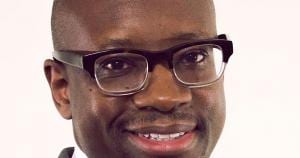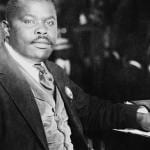 Anthony Bradley should be read.
Anthony Bradley should be read.
If he wrote it, read it. He is an unpredictable mind, because he is a thinker. If he ever takes one of those Internet quizzes that try to label your ideas, he may break the Internet. Professor Bradley’s* Liberating Black Theology taught me, challenged me, made me listen. In one way, I am sorry to comment, because that interrupts the listening and the learning.
Learning from Professor Bradley: Two Tasks
Liberating Black Theology does two important jobs for many Americans. First, it rescues Black Liberation Theology from political talk radio and takes the ideas and tradition seriously. Second, after he educates, Bradley challenges:
At the end, I suggest an alternate strategy for developing a redemptive-historical approach for understanding the black experience in America while remaining faithful to Scripture and orthodox Christianity. The thesis is that James Cone’s presupposition of black consciousness construed as victim supplies a fundamentally flawed theological anthropology for later developments in black liberation theology, leading to the demise of black liberation theology. In other words, reducing black identity primarily to that of victim, albeit at times inadvertent, contributed to the decline of black liberation to obscurity (that is, until Barack Obama ran for president).
This is brilliant stuff, removing a tradition from a niche where it is unexamined so accepted or pilloried for political points. Instead, Bradley grasps the power of a movement, one that sent President Obama to the White House, but also that the future of any theology is always found in fidelity to the Word of God:
Black theology has a future only if it presupposes the triune God and seeks to interpret the black experience through the lens of the whole of Scripture.
Imagine being surprised by the sermons of Jeremiah Wright. If you were, then Bradley rightly comments:
The fact that so many people are surprised to hear that anger in some of Reverend Wright’s sermons simply reminds us of the old truism that the most segregated hour in American life occurs on Sunday morning.
President Obama’s pastor is at the end of a long theological tradition that Bradley argues starts with James Cone. There is much to commend:
Black theology begins with the life experience of oppression and formulates theology respectively. The overall emphasis of black liberation theology is the black struggle for liberation from various forms of white racism and oppression, and it views the imperatives of the Christian gospel to that end.
Yet there is also a problem:
In the end, victimology perpetuates a separatist and elitist platform that provides no opportunity for racial reconciliation.
Victimology is the adoption of victimhood as the core of one’s identity. It is a subconscious, culturally inherited affirmation that life for blacks in America has been in the past and will be in the future a life of being victimized by the oppression of whites.
Professor Bradley introduces all of these ideas carefully and shows a way forward that does not deny history, our present problems, yet also is not captivated by them. He wishes for a global orthodoxy that includes the African-American experience, but is not defined by victim status.
Bradley insists we begin with reality: God exists, Jesus is the revelation of God to humankind, and God is the creator of all. Reality is also the painful history of the African-American community, but history does not end. There is a future hope! Move from God and history becomes a chain that keeps us from the good God.
Regardless of our racial or ethnic backgrounds, we have a common solidarity in sin.
The Biblical doctrine of sin is that sin is both individual and social. Injustice comes from people and from structures:
Social injustice is rooted in a human history of sin. Structural sin must be evaluated on the same philosophical ground as personal sin because structures have actors (i.e., men and women) who have a shared solidarity in sin. The proper theological orientation on this issue will promote a proper ground for understanding, moving those structural problems toward the good.
Bradley challenges both radical individualism, everything is on me or on you, and socialism, everything is about structure, with the Gospel. We are bad individually and we build bad structures. The Gospel is in opposition to both.
All humankind of all races must look Godward for salvation and not to injust social structures. The first is liberation, the second a trap. The trap captured an intellect such as James Cone, rightly frustrated with his seminary** that ignored African-American perspectives.
After all:
One of the central public roles of the black church has been to condemn all injustice, especially racism.
The failure of the white traditional church to condemn racism matters. Yet despite the necessity to list failures:
Riggins R. Earl Jr. highlights a critical distinction in the Christian identity of some racists by noting that white deists tended toward racism, while white theists tended to fight against discrimination.
Racism was never a problem of orthodoxy, but those of the orthodox who put a commitment to white supremacy over orthodoxy. Black theology is right to fight this injustice, but wrong to not see the more that there is to the world. Sadly, most who point this out do so to minimize the injustice. Bradley brilliantly does not do so.
I am aware of my ignorance, but this seems the middle way of Orthodoxy. Bradley knows the evils of racism that continue today in social structures and in individuals. However, Professor Bradley refuses to let victimization define everything. He looks Godward. God identifies and stands in solidarity with the oppressed, but is not oppressed. God liberates, because God is free.
On James Cone and a Black Theology of Liberation
James Cone, author of A Black Theology of Liberation, is seminal to a form of black theology that Bradley argues fails. However, one must understand Cone and why a rejection of orthodoxy was attractive to some in the African-American theological community. The move away from orthodoxy was a long term trend in academic theology generally. The lack of progress on issues of race and the failure of the white church to deal with justice issues made a new approach attractive. In the early 1970’s economic systems tied to Marxism also looked more attractive than they do after the Fall of the Berlin Wall. However, Cone was not merely a theological progressive, because that movement itself had been led and shaped by white theologians in the context of white supremacy.
While Cone found Marx useful:
Cone, however, is careful to reject the atheism of Marxism by disagreeing with those blacks who have accepted a Marxist understanding of the role and function of religion “without probing deeper into the thought forms of black people.” For slaves who first heard the gospel on plantations that were owned and operated by white Christians, it was precisely the work and person of Christ presented in the preaching and teaching of the Scriptures that provided “a knowledge of themselves.” It follows, then, that Jesus is confirmed by God in his “blackness” to bring good news to liberate oppressed victims, in complete contradiction to Marx’s observation regarding the oppressive dimensions of religion.
Bradley argues in detail that Cone has made a fatal error by elevating “victimization” as the guiding principle for his theology:
When the black person as victim remains the starting point, black theology, predictably, continues to veer further away from historic orthodox Christian theology. In the remainder of the book we will survey how Cone’s introduction of a victimology consciousness for black people serves as the ultimate starting point for understanding the development of black theology and all aspects of its vision for the black church in America.
The introduction of Marxist analysis to black theology is initially helpful, but even in an original thinker like Cornel West reinforces the unfortunate turn toward victimology.*** Cone and others saw that Marxist philosophy and economics was dominated by white thinkers and that there was little interest in learning from the African-American scholar or religious tradition.
Too much liberation theology was a theology of the oppressor that was not liberating anyone! Bradley also notes that Professor Thomas Sowell has made the case that black theology misuses Marx. Marxist thought describes a global development of economic and social systems, not a particular moment in history such as African-American oppression at the hands of white Americans. Furthermore:
Marx would have flatly rejected the idea that economics determines perspective—the assumed characterization of white theology by black theologians. Like many readers of Marx, black theologians who promote Marx generally read his work to find perspectives advantageous to them; however, in doing so, they fail to accurately apply Marx’s own doctrine (as do many “Marxists”).
Toward Something Liberating: Biblical Christian Faith
Against the failures of Cone and others, Bradley argues:
. . . one can arrive at both an understanding and application of the biblical text by employing a culturally applied hermeneutic. This is possible while retaining the authority of Scripture without compromising cultural specificity.
Bradley points to the history of the African-American community as giving a hermeneutic motivation when the African-American theologian goes to the text of Scripture. He denies that traditional means of reading Scripture were the problem with racist Christians or that orthodox theology cuts off an ability to use a cultural hemeneutic:
A culturally applied hermeneutic, whether it be African-American, Latino, or Asian, only describes various audiences and subcultures to whom the truth of the self-attesting Scriptures is to be applied. With particular target audiences, texts may be applied differently. However, it may be a different “angle” or emphasis and not necessarily contradictory to the “party line” interpretation. A culturally applied hermeneutic, which brings a particular cultural anthropology into consideration, may be the most effective means to achieve the task of contextualization. By engaging the contributions from other perspectives, understanding and applying the Scriptures in God’s multiethnic, international kingdom would be much more of a realization than an ideological discussion. Instead black liberation theologians chose to develop a separate ideological, theological, and hermeneutical framework.
Bradley gets this to the marrow of his bones. Social justice is necessary for a Christian, but not sufficient. We must be born again. Professor Bradley, I suspect, is one of those rare truth finders who irritate everyone: too truthful for the political and theological left and right.
This is a must read. No short reflection can capture the complexity of the issues. Take. Read. Listen. Learn.
——————————-
*I am blessed to associate with Professor Bradley at The King’s College (New York).
**My Dad and Dr. Cone appear to have been in the same seminary at the same time!
***The chapter contains some repetitions from previous sections that are unfortunate, However, this should not distract from the importance of the argument. Actually, once I noted it, I found the recapitulation helpful before moving to new material.












